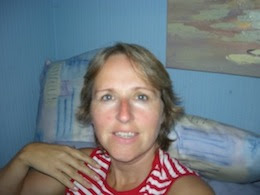The Devil's Cold Dish by Eleanor Kuhns
A Devil’s Cold Dish
is as much a story about being an outsider as it is about malice and
revenge. I am always fascinated by the
consequences of being different – or at least being perceived as different. And
there are so many ways to be different: mental and physical defects, sexual
orientation, even living outside the sexual mores of the local village (I
explored this in Cradle to Grave )
to mention a few. Even now, in this
modern age when we encourage tolerance and speak of inclusiveness, being perceived as Other can cause suffering.
How much worse must it have been two hundred years ago?
In A Simple Murder, my
first book, Mouse (Hannah Moore) was born with cleft palate. The superstition
of the times claimed that if a pregnant woman saw a hare, her child would be
born with this deformity. Now the defect is easily correctible with surgery. But
then, in the late 1700s?
What would happen to a girl with this defect when marriage
was almost the only path open to a woman? Especially a girl like Mouse without
wealth or position so even the option of using a good dowry to attract a mate
would be closed to her. I gave Mouse a future by putting her into the Shakers.
In that celibate community, she would have had a job, a family, and a purpose.
In A Devil’s Cold
Dish I explore the consequences of being the ‘Other” on my two main
characters. Will Rees grew up in a small Maine town as an angry little boy, a
fighter. No one will let him forget his past either, even though Rees has grown
up and become a different person. Besides that, as a former soldier in the
Continental Army and now a traveling weaver, he has seen a lot more of the
world than this little town. He has become more cosmopolitan and the hidebound
opinions of Dugard, Maine are no longer his. He has gained a certain
perspective. Resentment of Rees’s ‘town bronze’ in his home town means that the
allegation he committed a murder is believed.
His wife Lydia is even more at risk, An outspoken woman and a Shaker besides she
is viewed with suspicion. The Shakers were suspect because of their religious
beliefs. They were celibate and
pacifists – a fact that meant both British and Americans persecuted them during
the War for Independence. In a time when a woman could not inherit her
husband’s estate unless he specifically named her in his will, the Sisters
enjoyed equal status with the Brothers.
They welcomed black people, including escaped slaves, since they
believed everyone was a child of God. It is surely no surprise to learn the
Shakers were abolitionists.
Being different could get you killed. Women especially were
at risk. Even though the Salem witch
trials were one hundred years in the past, the belief in witches was still
current and widely accepted. (The last
witchcraft trial in New York took place in 1816.) An accusation of witchcraft
was usually a death sentence.
A malicious accusation directed at Lydia would be believed.
All of the family would be in danger.
With powerful enemies ranged against them, Rees protects his family by
sending them away. And he investigates the murders while a fugitive, running
for his own life.
Eleanor
Kuhns is the 2011 winner of the Minotaur Books/Mystery Writers of America First
Crime Novel. A lifelong librarian, she received her Masters from Columbia
University and is currently the Assistant Director of the Goshen Public Library
in Orange County New York.
Website
URL: www.eleanor-kuhns.com
Blog
URL: www.eleanor-kuhns.com/blog
Facebook
URL: www.facebook.com/Eleanor-Kuhns
Twitter:
#EleanorKuhns
LinkedIn:
https://www.linkedin.com/eleanor-kuhns-36759623





Comments